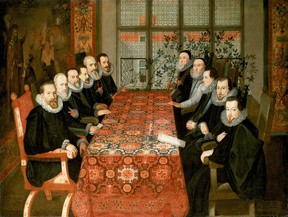 The big shark in this scenario is undoubtedly King Phillip III of Spain. If he fully committed his army to helping Ireland, it would have all been over for the English.
The big shark in this scenario is undoubtedly King Phillip III of Spain. If he fully committed his army to helping Ireland, it would have all been over for the English.
Spain did send troops to Ireland's aid during the Nine Years' War. They were at the Battle of Kinsale, but there weren't many of them. O'Neill had been counting upon Spanish support, so this lack-luster response was a great disappointment to him.
Two treaties with England hung over Ireland and Spain in 1606. The first was one signed in 1603 by O'Neill, which committed Ireland to never ask for foreign assistance in its defense again. I can't see that being a problem. The Flight of the Earls in 1607 was all about O'Neill and Tyrconnell going to ask in Catholic Europe for foreign assistance in Ireland's defense.
The second had been signed by King Phillip in 1604. That guaranteed peace between Spain and England, ending the Anglo-Spanish War. Again that would only hold for as long as it served Spain for it to do so. It was thrown out in reality in 1625, as the Thirty Years' War kicked off.
So let's assume that neither Hugh O'Neill nor Philip of Spain saw either treaty as a long term barrier. But would that have meant that Spain would intervene?
It's a hard one to call. In ordinary circumstances, no, Spain would not and did not come again. But these are altered circumstances and the temptation may have been too much for Philip to resist. After all, Ireland would be a prize which could be used as a base against both the English and the Dutch. Very useful in the Thirty Years' War; not to mention great for hitting at British pirates, before they could sail into the Americas and attack there instead.
However, he would have to commit hard, sending far more troops than he did for the Battle of Kinsale; and he'd also have to agree to let O'Neill decide strategy. The Gaelic armies were not suited to the open battlefield tactics favored by the Spanish.
Nevertheless, it's infinitely possible in 1606. But not if O'Neill waited until 1607 to stage his rebellion, as Philip's financial situation was too transparently dire by then.
The Vatican would not have openly spoken out about war in Ireland, for fear of further repercussions against the English Catholics. But Pope Paul V would possibly be putting pressure on the Catholic monarchs in Europe to help the Irish, if such a massive anti-Catholic backlash had occurred in Britain.
Highland Scotland was another Catholic stronghold, and the closest of them all. Gallowglass mercenaries had already been in Ulster for years, fighting on behalf of their Irish brethren. That would have continued now.
But would the Scottish clans have been officially called for this fight? I highly doubt it. King Charles I was Scottish. The clans wouldn't have fought against him, even if the Irish Gaelic way of life was in jeopardy. Their loyalties were clear from the outset and would continue to be, in reality, in the following century and a half.
It was support of a dispossessed Scottish king which led to Culloden.
Which leaves France. This one is a little more complicated, in that it all rests on the domestic and religious pressures placed upon Henry IV of Navarre. He had converted to Catholicism in order to rule France; and had signed an edict allowing religious tolerance in his country.
France was notable for its pacifistic stance at this time, not to mention being busy founding colonies in what would become Canada. I don't think that Henry IV would have committed his navy for Ireland. There's no precedent and little that would have changed to force that situation now.
It really did all boil down to King Philip III of Spain. On balance, I think that he may have helped in 1606, in which case, Ireland most certainly would have won. Until next time.



 There was no love lost between England and Ireland in 1605. Nor any other year that you care to randomly mention between 1169 and, well, probably still today. The central issue has consistently been England's continued invasion attempts; and policies which start at repression and end with genocide, whenever an occupation is temporarily achieved.
There was no love lost between England and Ireland in 1605. Nor any other year that you care to randomly mention between 1169 and, well, probably still today. The central issue has consistently been England's continued invasion attempts; and policies which start at repression and end with genocide, whenever an occupation is temporarily achieved.



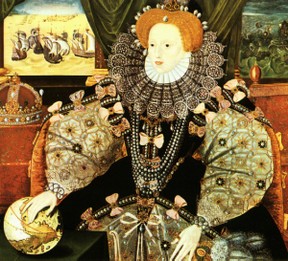 Fighting an Elizabethan age war on two fronts did not come cheaply. The reality for England, at the beginning of the 17th century, was that it could not afford to carry on with either.
Fighting an Elizabethan age war on two fronts did not come cheaply. The reality for England, at the beginning of the 17th century, was that it could not afford to carry on with either.


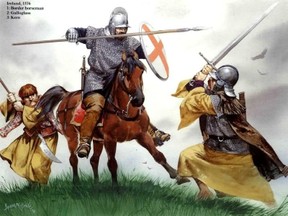 Guy Fawkes blowing up Parliament would have created turmoil at the top of English government. Which might possibly be the biggest understatement that I've ever typed on Wizzley.
Guy Fawkes blowing up Parliament would have created turmoil at the top of English government. Which might possibly be the biggest understatement that I've ever typed on Wizzley.



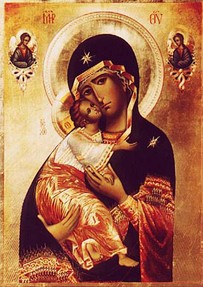 There was no sitting army in Jacobean England. It wouldn't be like today, when a Commander General gets the nod and off the military goes to war. The militia would have to be raised, often from the fields, and supplied.
There was no sitting army in Jacobean England. It wouldn't be like today, when a Commander General gets the nod and off the military goes to war. The militia would have to be raised, often from the fields, and supplied.
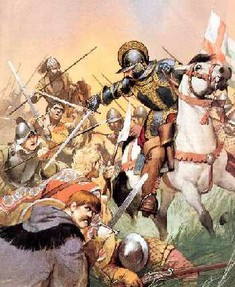 Many historians point to two factors, when trying to predict the outcome of an Irish Rebellion, in the wake of a successful exploding of Parliament House in November 1605.
Many historians point to two factors, when trying to predict the outcome of an Irish Rebellion, in the wake of a successful exploding of Parliament House in November 1605.  The big shark in this scenario is undoubtedly King Phillip III of Spain. If he fully committed his army to helping Ireland, it would have all been over for the English.
The big shark in this scenario is undoubtedly King Phillip III of Spain. If he fully committed his army to helping Ireland, it would have all been over for the English.





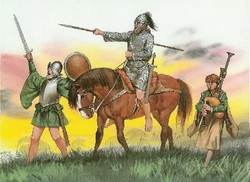

 St Tydecho's Churches in West Waleson 09/03/2014
St Tydecho's Churches in West Waleson 09/03/2014
 Goodies for an Outlander Premiere Partyon 03/06/2015
Goodies for an Outlander Premiere Partyon 03/06/2015
 Holocaust Memorial Day Interview with Rainer Höss, Grandson of Rudolf Architect of Auschwitzon 01/24/2015
Holocaust Memorial Day Interview with Rainer Höss, Grandson of Rudolf Architect of Auschwitzon 01/24/2015
 Romantic Valentine Gifts for an Outlander Fanon 01/16/2015
Romantic Valentine Gifts for an Outlander Fanon 01/16/2015

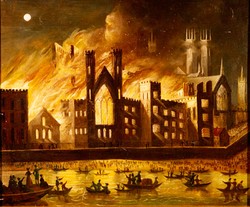
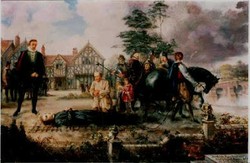
Comments
Bendigedig! (great)
iawn with me....hahahaha
Gogledd. :)
(I just prefer it, despite my family actually coming from the South! But I'm easy. Whichever you prefer.)
gogledd neu'r de?
Ie, iawn! (Yes, ok!)
Croeso. Can we converse in Welsh if I do? I need inspiration.
All of the above!
Basically there are six Celtic languages, all of which have come under pressure from English to just die out. Back at the very root of them, they're all related. Welsh, Cornish and Breton are on one branch; Irish Gaelic, Scottish Gaelic and Manx are on the other.
There's also a possible seventh, as Basque has been linked with the Celtic languages, as well some dialect languages in Northern Spain.
Obviously, given my heritage, I'd want to encourage you to learn Welsh. Diolch yn fawr (thank you very much) if you do! <3
I'm learning so much here! More about Wales too! But should I learn Gaelic or Welsh?